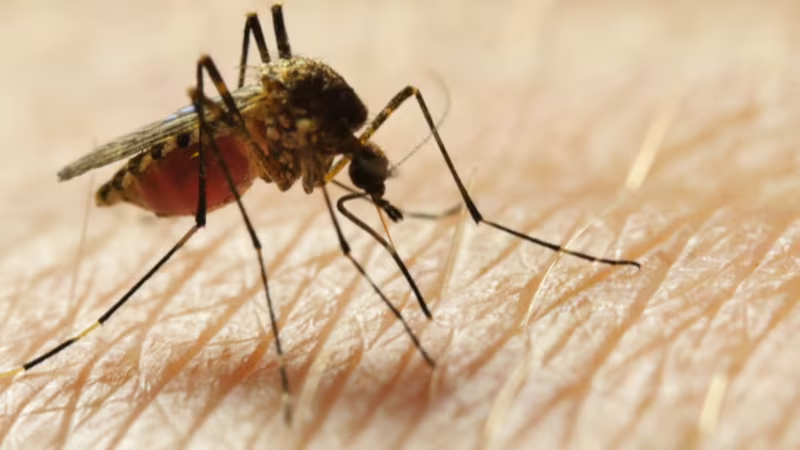The Southern 7 Health Department has confirmed one positive test for West Nile Virus (WNV) in a dead bird and another new case in mosquitoes in the southern seven-county region of Illinois. On July 9, health services staff collected a dead bird in Pulaski County and sent it to the Veterinary Diagnostic Lab at the University of Illinois for testing. The results, documented on July 18, confirmed the presence of WNV.
Weekly testing of mosquito traps across the seven-county region led to the fourth documented case of WNV in mosquitoes on July 17. The mosquitoes were collected from traps in Massac County, and the positive test result was confirmed on July 18. This follows earlier reports in July of WNV-positive mosquitoes in Alexander, Hardin, and Johnson Counties. Mosquito traps were placed in all seven counties in May.
WNV does not spread through coughing, sneezing, or touching. It also cannot be spread by touching live or dead animals. However, it is advised to avoid bare-handed contact when handling any dead animal. If disposing of a dead bird, use gloves or double plastic bags to place the carcass in a garbage can. The virus cannot be transmitted through eating infected birds or animals if the meat is fully cooked.
According to Southern 7 Health Department, common symptoms of WNV include fever, nausea, headache, and muscle aches, which can last from a few days to a few weeks. However, four out of five people infected with WNV will not show any symptoms. In rare cases, severe illnesses such as meningitis, encephalitis, or even death can occur. People over 60 and those with weakened immune systems are at higher risk for severe illness from the virus. If you experience symptoms of WNV, contact your physician immediately.
There are no vaccines to prevent or medications to treat WNV in people. To reduce your risk of WNV, the Southern 7 Health Department recommends following the three “R’s”: Reduce, Repel, and Report.
REDUCE: Ensure doors and windows have tight-fitting screens and repair any tears. Keep doors and windows shut. Eliminate or refresh all sources of standing water weekly, as mosquitoes breed in stagnant water. This includes water in bird baths, ponds, flowerpots, wading pools, old tires, and any other containers.
REPEL: When outdoors, wear shoes and socks, long pants, and a light-colored, long-sleeved shirt. Apply insect repellent containing DEET, picaridin, oil of lemon eucalyptus, or IR 3535 according to label instructions. Consult a physician before using repellents on infants. Do not use products containing oil of lemon eucalyptus or paramenthane-diol on children under three years old. Do not apply insect repellent to a child’s hands, eyes, mouth, cuts, or irritated skin. Spray insect repellent onto your hands and then apply it to a child’s face.
REPORT: Report locations where you see stagnant water sitting for more than a week, such as roadside ditches and flooded yards. The local health department or city government may be able to add larvicide to the water, which will kill any mosquito eggs.
Also Read:
- West Nile Virus Detected in Illinois Mosquitoes Raises Public Health Concerns
- Health Alert: West Nile Virus Found in Winnebago County
Staying informed and following these precautions can help reduce the risk of WNV. The Southern 7 Health Department will continue monitoring and reporting any new cases to keep the public aware and safe.




